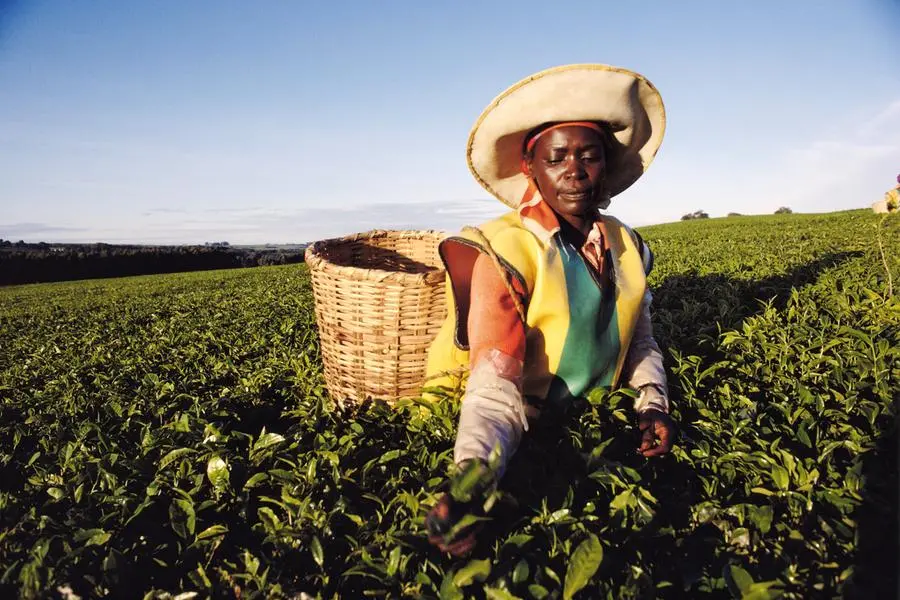PHOTO
Kenya has appointed a taskforce meant to address the crisis in the tea sector after unscrupulous brokers engaged in what has been described as unethical practices that have contributed to low sales.
The sector is expected to perform poorly this year, the result of a number of local and global issues including erratic weather due to climate change and logistics problems caused by delays in shipping tea due to Red Sea crisis. Kenya wants to look for solutions.
Andrew Karanja, Kenya’s Agriculture Cabinet Secretary said several kilos have remained unsold and the taskforce will be asked to find ways of avoiding a repeat.“It is notified a taskforce has been appointed to investigate the underlying causes and impacts of accumulation of unsold tea and propose short, medium and long term solutions,” read the gazette notice on November 15.
Chaired by Nicholas Munyi Kagua, it has 14 members and a secretariat of six people. As it is, Kenya will have to continue holding kilos of tea in their warehouses due to lack of market, despite suspending the $2.43 per kilo minimum price and allowing traders to buy it below the set price.
So far, some 100 million kilos of black tea from last year remains unsold, as traditional big buyers shy away. The loss is expected to be felt by farmers who hoped the volumes of tea in warehouses could earn them big chunks of money.
This is the first time the Mombasa Tea Auction, the second largest black tea auction centre in the world after Colombo in Sri-Lanka, will be rolling over such huge volumes of tea.
As such, Kenyan tea has lost its value in the market compared to Rwanda’s which now offers the highest price.
Market data by the East African Tea Traders Association (EATTA) show the price of Rwandan tea at $4.02 a kilo in the sale held on September this year, against Kenya’s tea at $2.21, Burundi $2.24, Uganda $1.27 and Tanzania’s $1.15 for the same quantity.
The value of Rwandan tea has been on an upward trend since the beginning of the year on the back of high demandBut as the new taskforce moves in, the government will be on the spot for failing to implement last taskforce report of 2016 formed by the Minister of Agriculture, Livestock and Fisheries Willy Bett.
Among recommendations it made was to improve tea grade, introduce value added tea and conduct intensive marketing abroad.
The National Tea Industry task force formed in 2014 analysed the qualitative information presented by the various stakeholders in the industry and identified six (6) main pillars within which, thirteen (13) key recommendations could have led to an expanded market demand, improve productivity and industry incomes.
While receiving the report on July 18, 2016, government officials at the ministry and counties agreed on an implementation plan but very little was done.
The Constitution of the task force comes at the back of Kenyan Deputy President Kithure Kindiki’s pledge to bring reforms in the administrative and policy areas of the tea sector.
Kindiki was speaking at the Kenya Tea Summit in Mombasa, pledging to correct the market misfortunes that may affect over 800,000 tea farmers in Kenya.
Terms of referenceSome of the terms of reference of the new taskforce include to investigate the effect of the minimum reserve price on the prevailing accumulation of unsold tea and delayed payments, the conditions and charges of warehousing and the quality and shelf life of accumulated unsold tea.
According to tea dealers, the cost of warehouses have significantly increased due to shortage of warehouses due to millions of kilos pending unsold.
The taskforce is also expected to investigate the roles of regulatory and other agencies along the tea supply chain to determine any unfair trade practices and their influence in the accumulation of unsold teas and delayed payments, propose short, medium and long-term practical measures to address the prevailing accumulation of unsold teas, prices and delayed payment.
Mr Karanja has since attributed current tea woes to various factors, including global market demands, local production changes, and seasonal influences.“Mismatch in tea price and quality has continued to negatively affect the East Africa tea sector as prices per kilo reach the lowest ever in the past three years,” said Mr Karanja.
The Mombasa Tea Auction and the newly introduced Dar es salaam tea auction have continued to register low prices, which officials attributed to similar reasons.
The two markets last year surpassed the international maximum unsold tea ceiling of 30 million kilos with Mombasa recording more than 100 million kilos.
Tanzania’s tea sector, through the Dar es Salaam Tea Auctions has been recording a decrease in sales volumes and fluctuation of prices with more than a half of the tea remaining unsold in many lots.
Data from the auction since its auction on November 13, 2023, indicates there has been a decline in prices compared to the $0.77 per kilo offered in the 66,920 kg of tea which remained a benchmark of price and volumes of sale.
Kenya produces about 200 million kilo grams of fresh tea annually and to support value addition in the tea industry, the government through the Ministry of Agriculture, is engaging with other relevant government agencies to explore modalities of establishing and developing a Common User Facility (CUF) infrastructure within the proposed Dongo Kundu Special Economic Zone (SEZ).
© Copyright 2022 Nation Media Group. All Rights Reserved. Provided by SyndiGate Media Inc. (Syndigate.info).




















